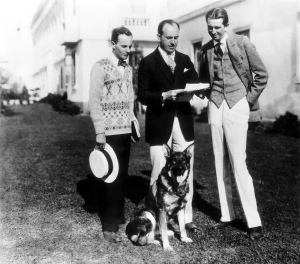Teaser Tuesdays: In Other Worlds: SF and the Human Imagination by Margaret Atwood
 It's that time. Time when the approaching Key West Literary Seminar starts to morph from concept to reality. And what a reality this one will be, especially if you are a fan of speculative fiction -- or, in some cases, what people call scifi. High-quality scifi to be sure. We've got your William Gibson, we've got your Douglas Coupland and yeah, we have your Margaret Atwood. Along with a couple other people like Jennifer Egan, Jonathan Lethem, Gary Shteyngart and ... well, just check out the link above.
The bad news, by the way, is that the Seminar is totally, completely, utterly and without hope sold out. There are something like 400 people on the waiting list. So there's no buying a ticket at this point. But there is the Sunday afternoon session, free and open to the public. I imagine the line for this one might start forming on New Year's Day.
It's that time. Time when the approaching Key West Literary Seminar starts to morph from concept to reality. And what a reality this one will be, especially if you are a fan of speculative fiction -- or, in some cases, what people call scifi. High-quality scifi to be sure. We've got your William Gibson, we've got your Douglas Coupland and yeah, we have your Margaret Atwood. Along with a couple other people like Jennifer Egan, Jonathan Lethem, Gary Shteyngart and ... well, just check out the link above.
The bad news, by the way, is that the Seminar is totally, completely, utterly and without hope sold out. There are something like 400 people on the waiting list. So there's no buying a ticket at this point. But there is the Sunday afternoon session, free and open to the public. I imagine the line for this one might start forming on New Year's Day.
Margaret Atwood, conveniently, has just written a book that is one of my absolute favorite kind of books -- literary criticism, or analysis, or description for the non-academic. Rescuing the examination of literature from the academy! God bless her! So anyway, In Other Worlds is my Tuesday Teaser this week, just under the wire since I started reading it on my lunch hour. The rules, as always, are to take two sentences from anywhere, then post the link in the comments section on the Should Be Reading blog.
"My field of specialization was the nineteenth century, and I was busying myself with Victorian quasi-goddesses; and no one could accuse [Rider] Haggard of not being Victorian. Like his age, which practically invented archaeology, he was an amatuer of vanished civilizations; also like his age, he was fascinated by the exploration of unmapped territories and encourters with 'undiscovered' native peoples." -- p. 109



